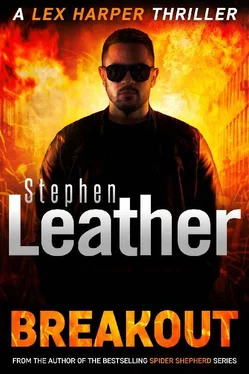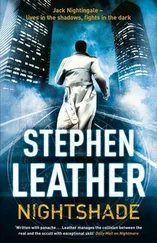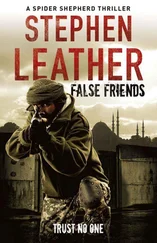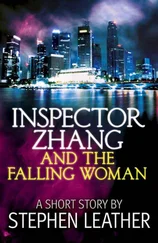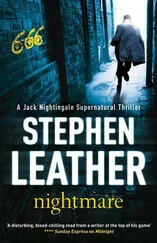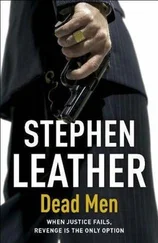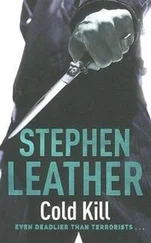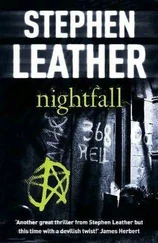The office was manned by a PA/receptionist screening visitors to the manager, the only other visible occupant of the office, and who turned out to be the man Harper had spoken to on the phone from Thailand. He had a neat moustache and thinning, sandy-coloured hair flecked with grey, and just in case there was any doubt about his military background he wore a regimental tie with his pinstriped suit. Harper was admittedly slightly prejudiced after their earlier conversation, but the manager looked to him like the sort of anal retentive type who would be an absolute stickler for formalities, rules and regulations, an impression reinforced by the nameplate on his desk which announced him as ‘Robin Parker-Phillips, Esq.’ Harper forced a smile as he sat down and looked around. ‘From your company’s reputation, Mr Parker, I was expecting a rather larger organisation.’
He gave Harper a condescending smile. ‘It’s Parker-Phillips actually, and we’re a very large organisation indeed. But this is purely a recruitment office, finding personnel for our head office in Geneva or our regional offices around the globe, as required. I and the other recruitment managers are given a profile of the type of person and skills required, and the terms of reference, and our job is to find the right person to fill that vacancy. All positions are short term, lasting only as long as the requirement lasts, which is often only a few days and never more than a few months at most, and all our people are not employees but self-employed contractors. We very rarely need to advertise, because we have hundreds of CV’s already filed away. When we need someone for a particular job we will identify an individual who we think will be suitable because their skills and experience match the brief. We contact them and if that person is not available, he will ring around his own circle of contacts and usually within the space of an hour someone who we have used previously will ring in and be offered the job. Once accepted, the successful applicant will be processed, told the daily rate of pay for that assignment and he will then sign a contract, complete any other necessary paperwork and then be fully briefed on the job. Like the rest of the security industry, we prefer British ex-military, particularly SAS, because of their experience of working under difficult and often hostile conditions while being separated from their family and loved ones. And of course the cachet of the SAS resonates well with the firm’s clients because of its association with successful outcomes in dangerous situations.’
He looked Harper over. ‘So, if you’re looking for work, you need to follow our protocol. Fill in the form that my PA will give you, then if you get over that hurdle, you’ll be interviewed by me or one of our other recruiters and after that, if we find you suitable, we’ll add you to our register and contact you if and when appropriate work becomes available.’
‘I’m not looking for work,’ said Harper. ‘I’m looking for information on a specific person, a friend of mine, who I believe was working for you and has now disappeared. Name of Scouse Davies. Scouse is a nickname. Pete Davies. He’s based in Hereford.’
Parker-Phillips’s expression became even more guarded. ‘As I’m sure you’ll appreciate, we operate on a strict need to know basis, so I’m afraid you really can’t expect me to discuss the confidential details of any of our self-employed contractors with you, whoever you are.’
‘His girlfriend called me, she’s very worried. Hasn’t heard from Scouse for weeks. They have a young daughter.’ He shrugged. ‘I’m sure if I can’t get her the answers she wants she’ll be on the phone to the police and probably the newspapers.’
Parker-Phillips nodded. ‘Fine,’ he said. ‘I’ll tell you what I can. Though frankly that isn’t much. As I said, we recruit here but operations are run out of our Geneva office.’ He sat back in his high-backed chair. ‘There were some unusual circumstances surrounding him being recruited. Our task often involves finding a courier to transport ransom payments or other high value consignments in and out of hostile environments. In this particular case, we were under extreme pressure to find a courier at short notice to take a payment in US dollars to South America. None of our regular contractors were available and, as usual, they rang round their contacts to find someone, but while we were waiting for the expected response, your Mr Davies turned up unannounced at the office. This in itself was unusual because, as I told you, the normal procedure is to complete an application form and then be invited to attend the office for an interview. The second unusual occurrence was that he not only brought his current CV, but his army discharge book as well. That was very useful in those circumstances because it enabled me to dot all the i’s and cross all the t’s, verifying everything on the CV from the discharge book. So because of the time pressure we were under, I took the unusual step of processing him straight away and shortly afterwards he was on his way to Switzerland to be fully briefed.’
‘I have to say I’m surprised that you found Scouse Davies suitable to be hired as a bagman.’
The manager raised an eyebrow. ‘Really? He had the right background. You need ice in the blood for that kind of work. Carrying a few hundred thousand dollars in cash around London or New York would give most people palpitations, but taking it into South American bandit country is something else again. You’ve got to have the presence - the balls, if you’ll pardon the phrase - to do it and you also have to be streetwise, with all the fighting skills needed to get out of there if things turn ugly. That’s why we only use ex-SAS men. They have the right skill-set, including the ability to think on their feet.’
‘And you thought Scouse was ex-SAS?’ Harper said.
Parker-Phillips frowned. ‘Are you implying that he’s not?’
Harper gave him a quizzical look. ‘Did the discharge book specifically mention service in the SAS?’
Parker-Phillips unlocked a filing cabinet behind him, riffled through the file drawers and then pulled out a slim folder. He scanned the contents and then said ‘As a matter of fact, it actually says Hereford Garrison, but I took that to mean SAS. I mean no one else is garrisoned there, are they?’
‘Plenty of people are, actually, but never mind, you aren’t the first to be hoodwinked by a Walter Mitty pretending to have served in the Regiment and you certainly won’t be the last.’ He gave a sly smile. ‘I guess that’s what happens when you don’t follow the protocol.’
He watched as Parker-Phillips’s face reddened with anger. ‘I’m ex-military myself,’ he said. ‘I was a superintendent clerk in the Rifle Brigade and I’ve come to expect a certain level of honesty from military men. Evidently I was wrong in this case.’
‘Don’t worry,’ Harper said, ‘your secret’s safe with me. However, I will need to talk to someone further up the food chain who can give me more details on where Scouse was sent.’
‘I’m the most senior person in London.’
‘Then I’ll obviously need to be in Geneva, bearing a letter of introduction that I’m sure you’ll be happy to provide for me.’ As he saw the manager hesitate, he added ‘That way, no one at head office need ever know that you hired a fake SAS man.’
Parker-Phillips scowled at him but then bowed his head. ‘Very well, tell my PA what you want it to say and she’ll type it for you.’ He glanced at his watch and shuffled the papers on his desk together. ‘Now, unless there’s anything else?’
‘We’re good,’ said Harper.
CHAPTER 4
Harper flew to Geneva that afternoon, taking with him the letter of introduction to the chairman of the company that he’d been given by Parker-Phillips, and at just before four o’clock, he presented himself at Risk Reduction’s corporate headquarters, a low, ultramodern glass and stainless-steel building in a fashionable area of the city. He was kept waiting in the lobby for a minimal amount of time while he was issued with a visitor’s security pass, but it was long enough for him to be able to observe the security systems. A couple of uniformed, armed guards patrolled the entrance, while CCTV cameras covered the interior and exterior of the building and the approaches to it, but there was also much more sophisticated protection: an airlock walled with bullet-proof glass through which all visitors to the building had to pass. When a visitor entered, the glass doors behind him closed, but the ones in front of him remained shut until sensors had sniffed the air for any trace of explosives or firearms. Only then did the doors slide open and allow the visitor into the interior of the building.
Читать дальше
